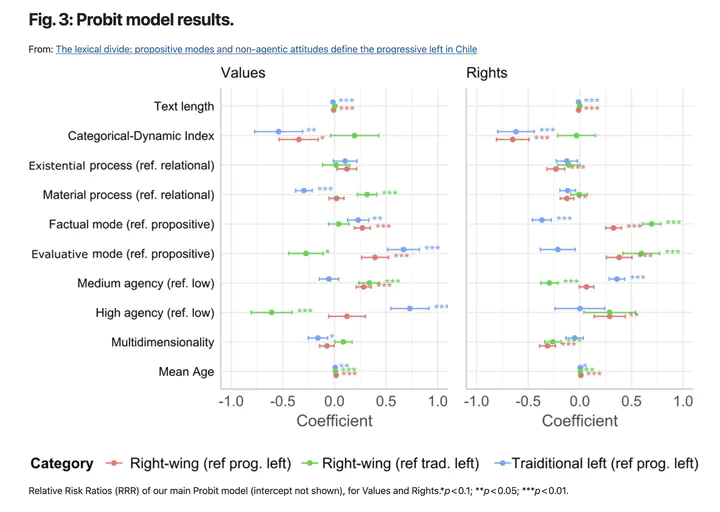The lexical divide: propositive modes and non-agentic attitudes define the progressive left in Chile
 Image credit: CRiSS-LAB
Image credit: CRiSS-LABAbstract
Internal factors-such as psychological traits or individual attitudes-relate to and explain political cleavages. Yet, little is known about how locus of control, agency, and modal attitudes impact political ideology. Utilizing textual analysis within the context of the Chilean 2015 constituent process, we go beyond traditional survey methods to explore community clusters in “Values” and “Rights” networks built upon the deliberation of 106,000 people. Our findings reveal distinct attitudinal patterns across political orientations the progressive left generally exhibits a more propositive and non-agentic attitude, the traditional left adopts an evaluative stance towards values, and the right-wing community leans towards a factual attitude but shifts to an evaluative stance when discussing rights. These results underscore the role of psychological constructs in shaping political ideologies and introduce textual analysis as a robust tool for psychological and political inquiry. The study offers a comprehensive understanding of the complexities of political behavior and provides a new lens through which to examine the psychology of political ideology.